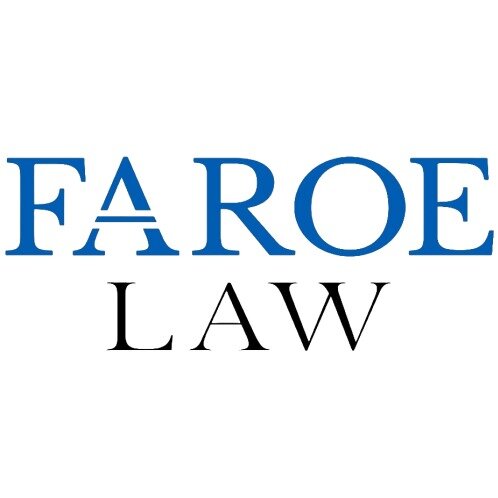Best Environmental Law & Compliance Lawyers in Faroe Islands
Share your needs with us, get contacted by law firms.
Free. Takes 2 min.
Or refine your search by selecting a city:
List of the best lawyers in Faroe Islands
About Environment Law in Faroe Islands
The Faroe Islands, an autonomous territory within the Kingdom of Denmark, is renowned for its unique environment and pristine landscapes. Environmental law here is designed to protect these natural assets, maintain biodiversity, and sustainably manage resources. The Faroese government is responsible for local environmental legislation, which covers issues such as waste management, pollution control, wildlife protection, and sustainable development. These laws reflect the islands' commitment to preserving their distinctive natural environment while accommodating necessary economic activities.
Why You May Need a Lawyer
There are several situations where you may require legal assistance related to environmental issues in the Faroe Islands. For instance, if you are starting a business that might impact the environment, legal guidance is crucial to ensure compliance with local regulations. Individuals or organizations involved in property development near environmentally sensitive areas may need legal advice to navigate permitting processes. Moreover, if you are involved in disputes over land use or pollution, a lawyer specializing in environmental law can help protect your interests and guide you through complex legal frameworks.
Local Laws Overview
Environmental laws in the Faroe Islands focus on maintaining ecological integrity and sustainable use of resources. Key aspects include:
- Conservation and Biodiversity: Legal protections for native species and habitats to prevent loss of biodiversity.
- Pollution Control: Regulations related to emissions, waste management, and the prevention of marine and terrestrial pollution.
- Resource Management: Guidelines on the extraction and use of natural resources, emphasizing sustainability and minimal environmental impact.
- Land Use Planning: Zoning and land use laws to balance development with environmental protection.
- Impact Assessments: Requirements for environmental impact assessments for projects likely to affect the environment significantly.
Frequently Asked Questions
What is the main environmental law governing the Faroe Islands?
The main legal framework is set by local environmental protection acts, which encompass regulations on pollution control, nature conservation, and sustainable resource use.
Do I need a permit to start a business that could impact the environment?
Yes, businesses likely to impact the environment must obtain necessary permits from local authorities, and may need to undergo environmental impact assessments.
Are there specific rules for fishing and marine conservation?
Yes, there are strict regulations governing fishing practices to ensure sustainable fishing and protect marine life, managed by local and regional authorities.
How can I resolve disputes over land use near protected areas?
Disputes can often be resolved through mediation or arbitration, but legal assistance may be necessary to navigate complex zoning and environmental laws.
What steps should I take if I suspect environmental law violations?
You should report the violation to local environmental authorities, and legal counsel can assist in following up or pursuing legal action if necessary.
How are environmental impact assessments conducted?
Environmental impact assessments are carried out by qualified professionals to evaluate the potential impact of a project and propose mitigation measures if required.
What penalties exist for violating environmental laws?
Penalties can include fines, revocation of permits, and in severe cases, legal action with possible civil or criminal consequences.
Are there incentives for businesses to adopt environmentally friendly practices?
Yes, certain incentives and schemes may be available to support businesses investing in sustainable practices or technologies.
How does climate change policy affect local businesses?
Policies may include regulations to reduce carbon emissions and requirements for increased sustainability in business operations.
Can legal advice help in applying for environmental funding or grants?
Yes, legal experts can guide the application process, ensuring compliance with all requirements and maximizing chances for approval.
Additional Resources
For additional guidance, consider consulting these resources:
- Faroese Environment Agency: The main governmental body overseeing environmental regulations and policies.
- Local Business and Development Offices: These offices can provide information on permits and regulations for businesses.
- Environmental NGOs: Organizations like SEV provide insights and advocacy related to environmental protection.
Next Steps
If you need legal assistance, it is recommended to contact a lawyer specializing in environmental law in the Faroe Islands. Legal firms with expertise in local environmental issues can guide you through compliance, permitting, and litigation processes. Early legal support can ensure that you meet all necessary legal requirements and can effectively address any environmental legal challenges you may encounter.
Lawzana helps you find the best lawyers and law firms in Faroe Islands through a curated and pre-screened list of qualified legal professionals. Our platform offers rankings and detailed profiles of attorneys and law firms, allowing you to compare based on practice areas, including Environmental Law & Compliance, experience, and client feedback.
Each profile includes a description of the firm's areas of practice, client reviews, team members and partners, year of establishment, spoken languages, office locations, contact information, social media presence, and any published articles or resources. Most firms on our platform speak English and are experienced in both local and international legal matters.
Get a quote from top-rated law firms in Faroe Islands — quickly, securely, and without unnecessary hassle.
Disclaimer:
The information provided on this page is for general informational purposes only and does not constitute legal advice. While we strive to ensure the accuracy and relevance of the content, legal information may change over time, and interpretations of the law can vary. You should always consult with a qualified legal professional for advice specific to your situation.
We disclaim all liability for actions taken or not taken based on the content of this page. If you believe any information is incorrect or outdated, please contact us, and we will review and update it where appropriate.
Browse environmental law & compliance law firms by city in Faroe Islands
Refine your search by selecting a city.













